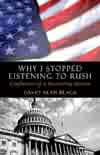|
restoring our biblical and constitutional foundations
|
Loving God – and Our Neighbors
One of the perversions of the Gospel I think needs eliminating today is the emphasis upon personal evangelism to the detriment or exclusion of any social emphasis. I do not question the fact that salvation is personal and individual, but it is far more than that. However, for many evangelicals the emphasis on the personal and individual has increasingly made salvation individualistic. The whole of the Christian experience is thought to be one’s personal relationship to God – often to the exclusion of one’s relationship with others or to the culture in general.
Salvation is both personal and social. Since sin is personal, each individual is guilty of sin and must be forgiven for his sin, not someone else’s. However, salvation is also social. Jesus is Lord of all. Politics, education, economics, the arts – all these are included under His divine Lordship. Thus Christians must come to understand that although salvation is individual and personal, the kingdom of God is far broader than just our personal salvation experiences. The point here is that the social Gospel is an integral and necessary part of the Gospel.
For example, I can say (and I say it with regret) that I have led people to Christ without any follow up whatsoever. That is, I failed to emphasize the Lordship demands of Christ in a way that would have encouraged them to get involved in a local body of believers where they could be taught “to observe all things whatsoever I have commanded you,” including Jesus’ love command. In Wesley’s preface to his 1739 Hymn Book he wrote, “The Gospel of Christ knows no religion but social, no holiness but social holiness.” Therefore we must face the question: for the one who has a personal relationship with Jesus Christ, is it really possible to serve Him without displaying a genuine love and concern for others?
As player-coaches, elders must encourage their flocks to be all that God is calling them to be in the world – people who are truthful, loving, and caring, trying to change conditions that are not in harmony with God’s will, and seeking to meet the needs of others – physically, emotionally, spiritually, economically, educationally. We need to “play the music” before non-believers will “hear the words.” We must do everything possible, through love and good deeds, to show them the love and goodness of God and help them to see that proper human relationships are possible only through a proper relationship with Christ. Indeed, it is Christ’s love that frees us from our sins to truly love others (John 8:36-38; Gal. 5:13).
This is not a new program to promote. This is just living out our Christianity – cleaning out shut-ins’ gutters, raking their leaves, sawing their fallen limbs after an ice storm, having an “open door” policy at our homes and offices, gently but firmly defending the faith in our homes and in the public square, loving our unsaved neighbors enough to confront them with their lostness, etc. With joy we are to go all out with both emphases – to love God with our whole hearts, and to love our neighbors as ourselves.
In these troubling times, I believe that Christians have a greater opportunity than ever to engage their culture and seek God’s sovereign intervention in the affairs of men.
David Alan Black is the editor of www.daveblackonline.com. He is the author of Why I Stopped Listening to Rush and numerous other books.
